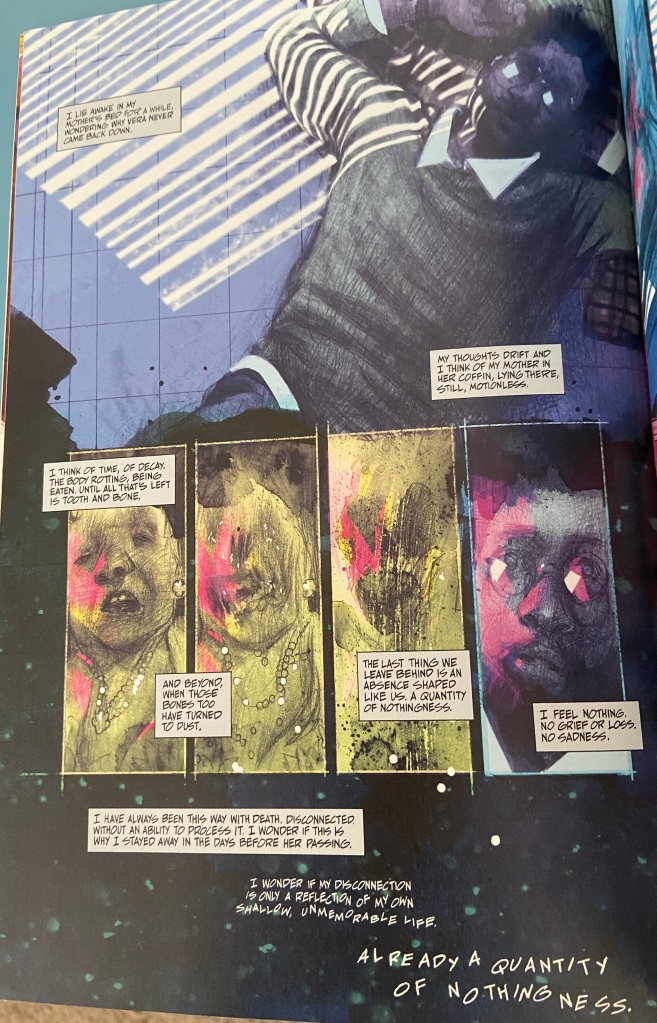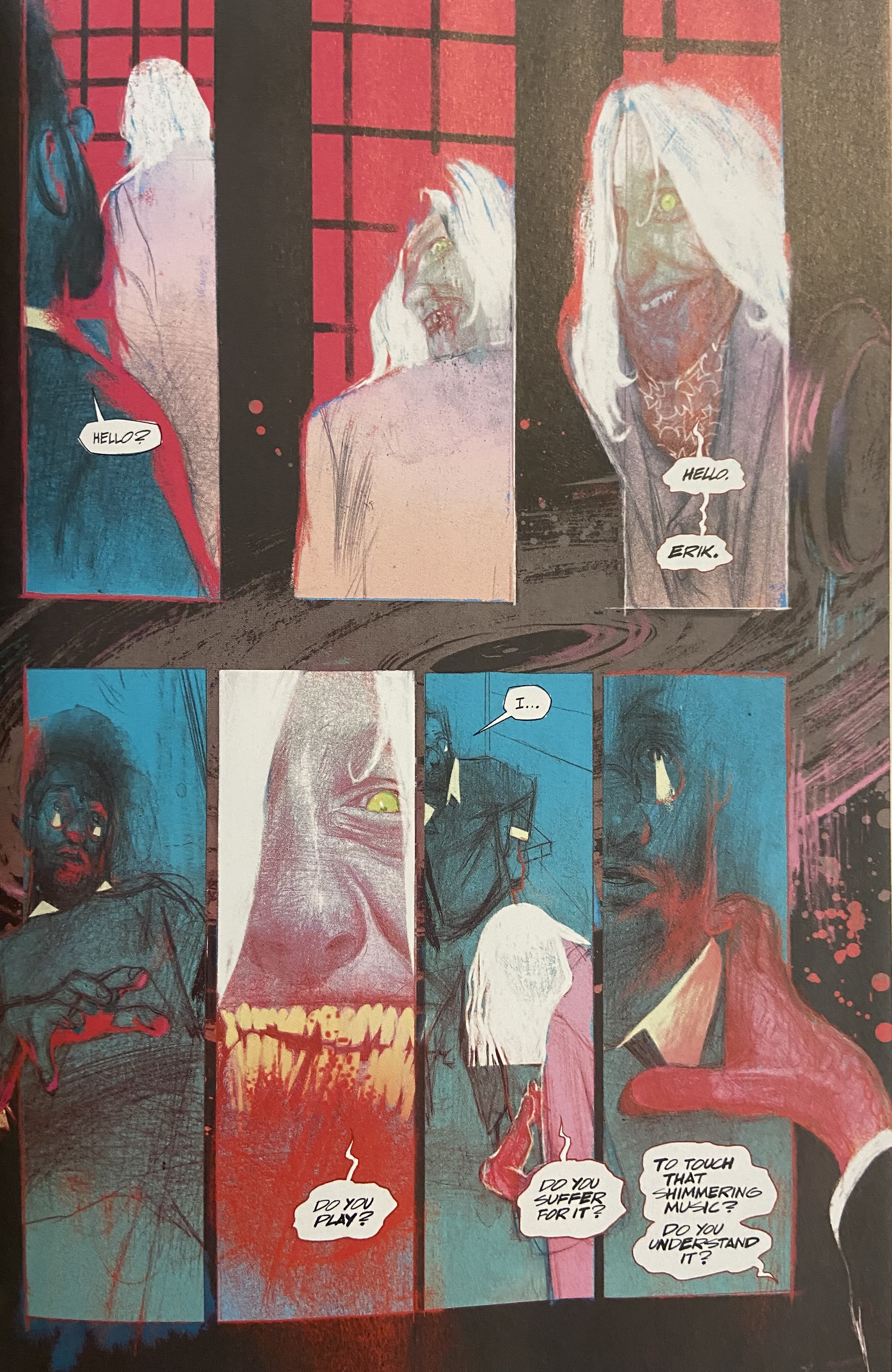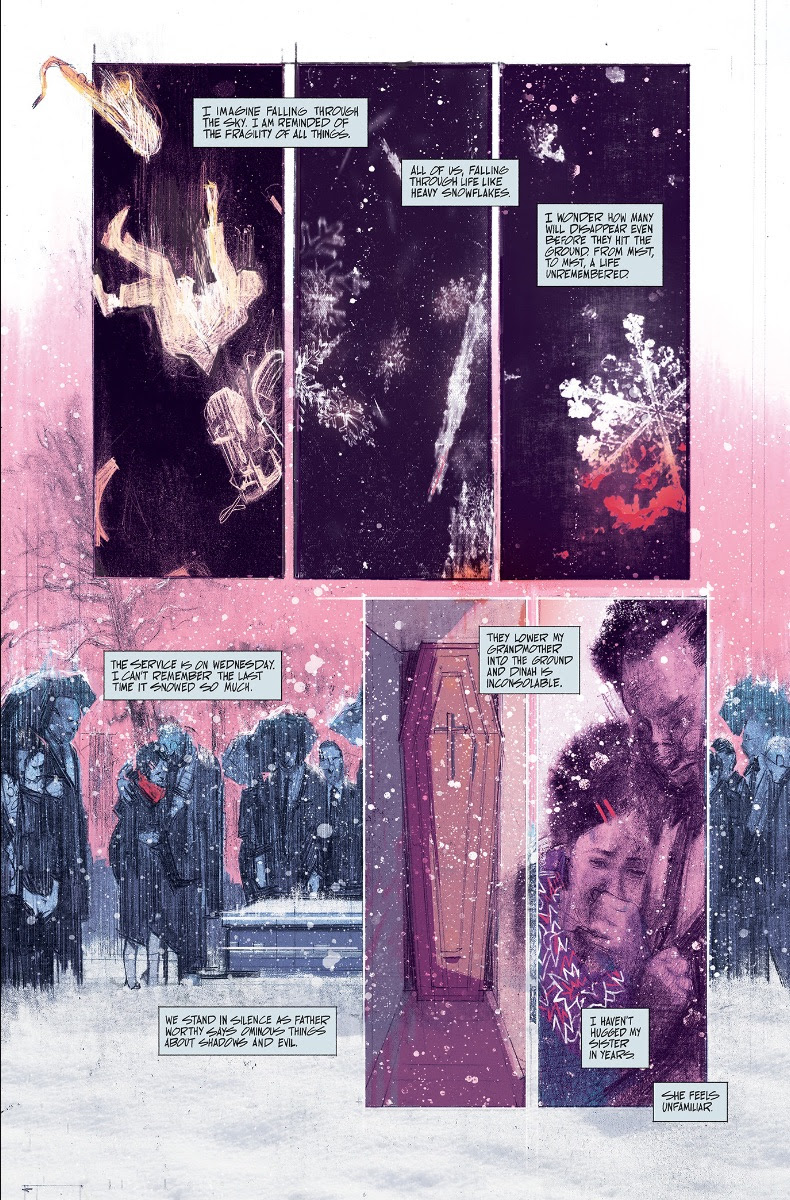I decided to keep writing about this case because I’m inspired by what I hope is a crucial turning point. I want to be careful not to assume that this is the moment where everything clicks for the client. Having said that, I can see her connecting to our insights emotionally and not just intellectually. She has greater stillness and presence in session (which I hypothesize is largely based on the ADHD medication she got from her doctor after I diagnosed her and the her willingness to be more open in session), She seems to have a greater ability to stay with the deeper issues and feelings. I will attempt to reconstruct crucial moments of yesterday’s session using both my notes and memories.
When the session began the client took a moment to note my haircut and to mention that she needs one. I know that this client likes spending a few seconds at the start of each session with a little small talk in order to ease into things. I am a bit more open with her during the small talk due to her request a year ago that I not hold back so much combined with my realization that she was indeed correct in her observation. (The holding back, I realize now, was based on the counter-transference issues I shared in my last entry as well as an intention to avoid overwhelming her like her last therapist had done). The client seemed ready to work in that she looked embodied (comfortable and in her skin) and was ready to move on from the small talk. I expressed to her that I felt like I had offered an interpretation to the dream so hastily last session that I didn’t give her a chance to share her own thoughts and feelings. My client thought about it for a second and said, “Oh, yeah. I think that you were right though. I mean, I appreciate you saying that but it resonated really well for me.” Though she did not feel the need at the moment to process the dream further, she did use this as a launching point for talking about her current lack of desire to date.
My client’s libidinal energy appears to be present both based on her self-report and her dream from last week; but her desire to “go-through-the-motions-of-dating” is low right now. My client struggled to go much deeper on this despite my invitations. I decided to let it rest and trust that the client was simply following her own wants/needs in leaning away from dating. I quickly hypothesized, however, that this might be a very positive thing. As the client gets less anxious, more focused and more embodied, the desperate energy to date and the fear of “missing out” isn’t driving her as much.
She suddenly looked a bit stuck but still quite grounded (another positive things since she used to feel nervous and responsible for moments of silence in the session). She invited me to lead a little bit and I asked her if she would like to explore the repulsion she has felt both in and out of session in moments where intimacy is approached. To my surprise she did not simply give consent to explore this but sounded generally interested as she said, “Yes, let’s do that.”
I asked client if she could think back to the last moment (a few sessions back) when she was depressed and couldn’t really do much work in session. More specifically to the moment when I asked, “What if instead of working so hard to pull you out I simply accompanied you right now?” My client’s eyes got big (like she remembered)…
Cl: Yes, I had this feeling that I wanted to push you away.”
Me: That’s right. What’s your fantasy of what would have happened if you didn’t push me away?
Cl: Honestly, I know everything would be okay, I trust you.
Me: Yes and I sense you’re saying that from your intellect so let me say something and then you let me know how you feel in your body. I would like to be with you in your feelings here right now.
Cl [makes humorously disgusted face]
Me: [I chuckle] That seems about right. Okay good. Keep those walls up so that we can work with them. Remember you’re in charge of them, okay?
Cl: Yes.
Me: Your face showed disgust.
Cl: Yes, but it feels more like fear. Like it was too vulnerable to show fear so I joked and made that face.
Me: Okay, fear. What do you fear will happen?
Cl: I don’t know. I think it’s like this worry that you only want to connect to my vulnerability because you need it. Like…I’m not sure who it’s for. I don’t mean to be offensive.
Me: I’m good. Keep going.
Cl: It’s just like…I’m never sure if people really want to help or if they want something. Plus, I hate feeling needy. It’s so vulnerable.
Me: Let’s return to the hatred of neediness. I know it’s connected but let’s stay with us.
Cl: Okay. I feel like I’m picking up on something.
Me: Wow, your radar is so finely attuned to people’s feelings and needs that you probably are. Any thoughts on what you’re picking up on?
Cl: No, it’s just a feeling. I can’t quite articulate it.
Me: What if I said you might be picking up on some unmet developmental needs of mine and on how I get those needs partially met in this career and, especially, with the clients I enjoy working with most.
Cl: [Her eyes moisten]. Thank you for saying that.
Me: Tell me about the tears.
Cl: I don’t know. It always helps me when you remind me how you’re not perfect. I feel less alone.
Me: You feel less alone? Closer to me? What’s that like?
Cl: [still watery eyed]. Yes. Good.
Me: [I pause to let my client feel her emotions.] Let’s talk about your relationship to “neediness” in yourself and in others.
From here my client and I revisited her childhood memories which–to summarize quickly–involve a mother who was at times an emotional mess and who got her needs met through my client, and a father who was unreachable. Additionally, my client recalled what a big emphasis her father put on “toughness”. She received praise for her athletic accomplishments and for playing through pain but for very little else.
Me: So with your mom you can never be sure if she’s there for you or for herself.
Cl: Yes, I think it’s still true today to some degree.
Me: What’s that like?
Cl: Overwhelming. Lonely.
Me: [I pause to let client feel it.] And your dad…you had to work for his love. You had to be tough and seek praise but it was never enough.
Cl: Yes.
Me: So there’s no place for your needs anywhere there. Your mom’s needs override yours and your dad unwittingly gives you the message that emotions and needs are to be “toughed out”. So for you to preserve your connection to them you disown your needs. You disown what you earlier described as your feminine side.
Cl: Yes, I get so turned off when I see straight men use feminine hand gestures or if they’re too sensitive. I know it’s bad for me but I have been drawn to men who are skilled and outdoorsy but they always end up unavailable. But yes, I think I hate it in myself.
Me: I’m almost embarrassed to offer an interpretation that’s so on the nose but…you chase your father and reject that which you associate with your mother; namely “neediness” and “emotions” and vulnerability.
Cl: Oh, my god, Yes.
Me: When we start to feel close in session through our vulnerability you’re not just pushing me away, you’re pushing away your own wants and needs and vulnerability. It’s scary.
Cl: [tear eyed]. Yes. I don’t know why I hadn’t though of it like that. It feels so true.
Me: Actually, this is a well worn path for us. But my timing was not right the other times. That and you had trouble staying present. It’s not purely intellectual right now.
Cl: Yes.
I have learned that these “amazing sessions” are often followed by regressions or cancellations. That progress is never linear. In this case it would more likely be returning to content. But perhaps not. And so I will simply chalk this us as I what I believer to be progress in our quest to help my client accept herself and to be clearer about what she really wants/needs from relationships. Some final thoughts…
In client’s erotic dreams she was happy in her romantic connection with me. She wasn’t afraid of my neediness or her own. In a sense I represented not just what she wants in another person but she wants for herself. The client fears that if she were to begin to own those parts of herself that she would be overtaken and become like her mother. Not only that but the more integrated version of her that accepted her vulnerability would psychically lose connection to her father since his “toughness” is what she identified with (it was an elixir to her mother’s neediness). There are a lot of moving parts here that relate to her connection to her parents as well as her self-identity. In short, though we have made progress the work that is to come needs to involve not just her acceptance of her own emotions but a sort of redefining of the self. I hope I can help my client through that.


